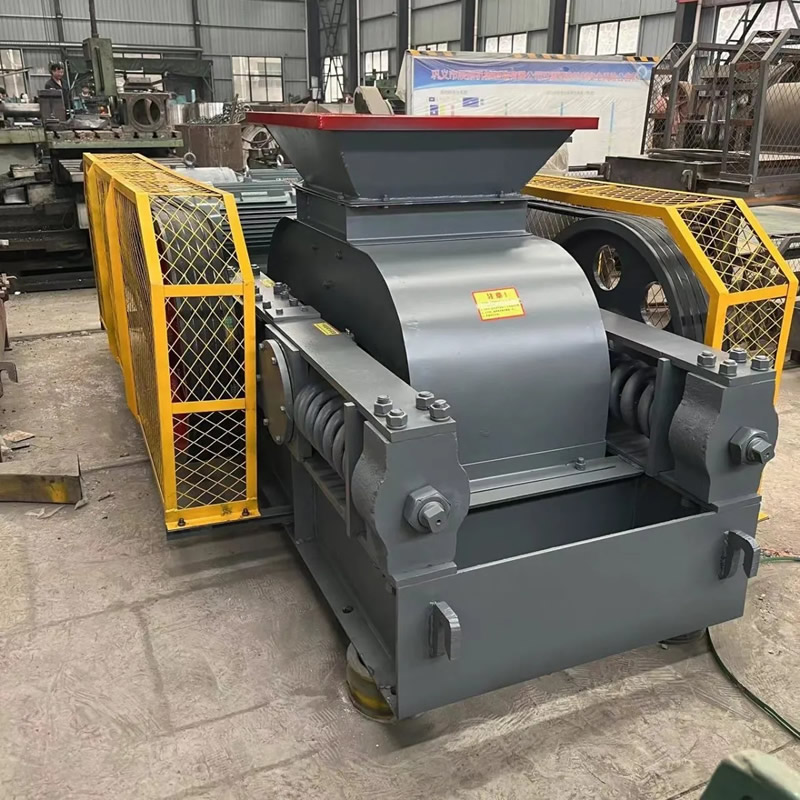Jushang Machinery double toothed roller crusher in the application of lead and zinc processing examples
Analysis of Angola's Economic Advantages
1. Abundant Natural Resources
One of the most significant economic advantages of Angola is its vast array of natural resources. The country boasts substantial reserves of oil and gas, which are crucial to its economy. Angola is one of the world’s largest producers of oil, and this sector has been a major contributor to its GDP for decades. Additionally, Angola has rich deposits of diamonds, making it one of the top diamond producers globally. Other valuable minerals found in the country include copper, iron ore, bauxite, and uranium. These resources provide significant opportunities for export earnings and foreign investment.
2. Strategic Geographical Position
Angola’s location on the southwestern coast of Africa provides it with strategic advantages. It has access to both the Atlantic Ocean and the Congo River, facilitating trade and transportation. This geographical positioning makes it a gateway for regional trade, particularly with neighboring countries such as the Democratic Republic of Congo (DRC), Zambia, and Namibia. Furthermore, the Port of Luanda is one of the deepest natural harbors in Southern Africa, enhancing its potential as a logistical hub for maritime trade.
3. Growing Agricultural Sector
While Angola is predominantly known for its oil industry, the agricultural sector holds considerable promise. The country has a favorable climate and ample arable land that can be utilized for various crops. Key agricultural products include coffee, sugarcane, citrus fruits, and maize. With increased investment in irrigation, modern farming techniques, and infrastructure, the agricultural sector has the potential to diversify Angola’s economy and reduce its dependence on oil and minerals.
4. Tourism Potential
Angola possesses diverse landscapes and cultural heritage that could attract tourists. The Kalandula Falls, the second-largest waterfall system in the world, and the coastal areas of Benguela and Tômbwa offer unique attractions. Additionally, the country’s rich history and vibrant culture provide opportunities for cultural tourism. Developing the tourism sector could contribute significantly to economic growth and job creation.
5. Youthful Population
Angola has a relatively young population, with a median age around 19 years old. This demographic dividend presents an opportunity for economic growth if harnessed effectively. Investing in education and vocational training can equip the youth with skills necessary for a dynamic workforce, fostering innovation and productivity across various sectors.
6. Infrastructure Development
Recent efforts to improve infrastructure, such as road networks, airports, and ports, have begun to yield results. The construction of new highways and railways aims to connect remote regions with urban centers, facilitating trade and mobility. Enhanced infrastructure can attract more foreign investment and boost economic activities across different sectors.
7. Political Stability and Governance
In recent years, Angola has shown signs of improved political stability and governance. Efforts to combat corruption and enhance transparency in public administration create a more favorable environment for domestic and foreign investments. A stable political climate is essential for sustained economic development and investor confidence.
---
I hope you find this analysis helpful. If you need further details or specific sections expanded upon, please let me know!


The Double toothed roller crusher is extensively applied in various industries due to its unique design and efficient crushing capabilities. Here is an analysis of its application domains:
1. Mining Industry:
- Coal Mining: The double toothed roller crusher is widely used for the primary and secondary crushing of coal. Its ability to handle large feed sizes and produce a consistent product size makes it ideal for coal preparation plants.
- Metal Ores: In metal ore processing, this crusher can be employed to crush ores such as iron ore, copper ore, and gold ore. Its robust construction ensures durability even with abrasive materials.
2. Construction and Demolition Waste Recycling:
- Concrete and Asphalt: The crusher effectively processes concrete and asphalt from construction and demolition sites, reducing them into reusable aggregates. This contributes to sustainable construction practices by recycling waste materials.
- Rebar and Metal Scrap: It can separate and crush steel reinforcement bars (rebar) and other metal scraps from demolition debris, facilitating their recycling.
3. Agricultural Sector:
- Biomass Processing: In biomass power plants, the double toothed roller crusher is utilized to crush agricultural residues like straw, wood chips, and bark into smaller pieces for easier combustion or further processing into biofuels.
- Animal Feed Production: It can also be used to process raw materials for animal feed, ensuring uniform particle size for better digestibility and mixing.
4. Waste Management and Recycling:
- MSW (Municipal Solid Waste): The crusher plays a crucial role in waste-to-energy plants by shredding municipal solid waste into manageable sizes before further processing or incineration.
- E-Waste Recycling: It assists in crushing electronic waste, separating valuable components like metals and plastics for recovery and recycling.
5. Sand and Gravel Industry:
- Aggregate Production: The double toothed roller crusher is effective in producing high-quality aggregates from natural sand and gravel deposits, essential for construction purposes.
- Quarrying: It aids in the reduction of quarried rock into desired sizes, contributing to the production of crushed stone for road bases, concrete, and asphalt mixes.
6. Chemical Industry:
- Powder Production: In chemical manufacturing, the crusher is employed to grind raw materials into fine powders required for various chemical reactions and processes.
- Composting: It helps in breaking down organic materials during composting processes, accelerating decomposition and improving soil fertility.
7. Food Processing:
- Spices and Herbs: The crusher can be used to grind spices and herbs into fine powders, enhancing their flavor release and usability in culinary applications.
- Fruit and Vegetable Waste: It processes fruit peels, vegetable trimmings, and other organic waste into compostable material or animal feed supplements.
In summary, the Double toothed roller crusher's versatility and efficiency make it a valuable asset across multiple sectors, ranging from mining and construction to waste management and food processing. Its ability to handle diverse materials and deliver consistent results underscores its significance in modern industrial operations.